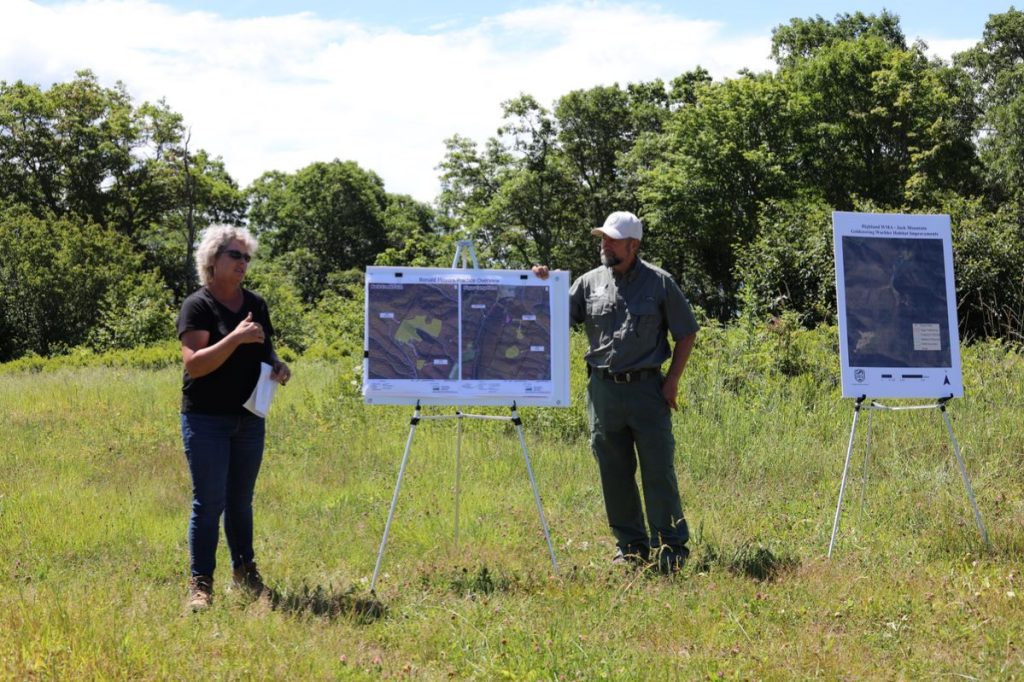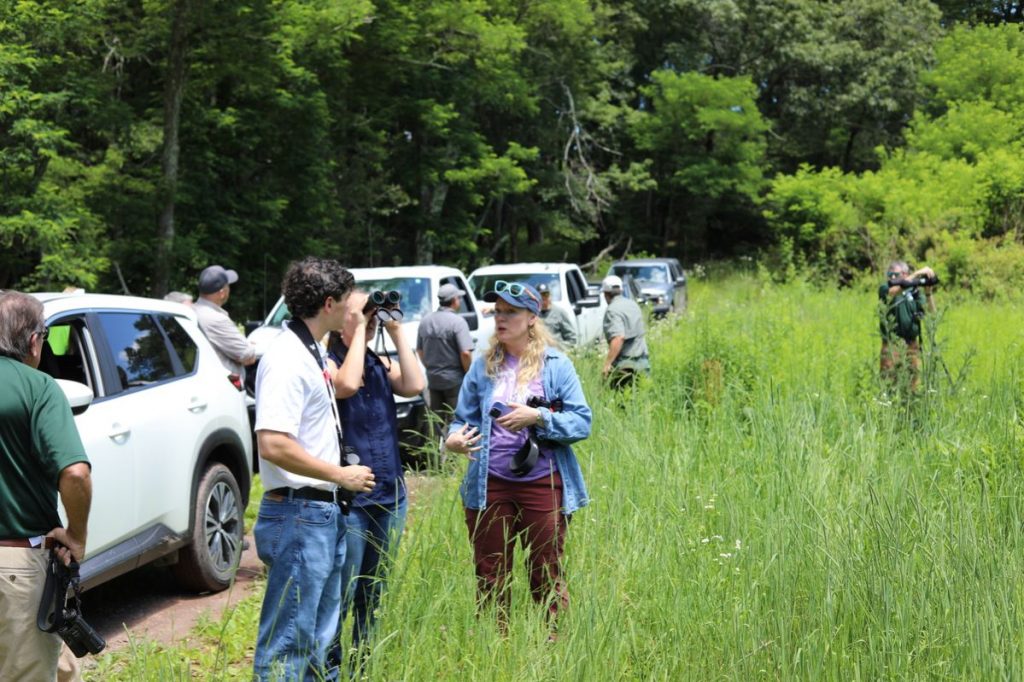Partnerships to Benefit Wildlife on Display at Congressional Field Tour
Appalachian Mountains Joint Venture (AMJV), in partnership with the National Wild Turkey Federation (NWTF), USDA Natural Resources Conservation Service (NRCS), the Virginia Department of Wildlife Resources (DWR), Trout Unlimited, and Laurel Fork Sapsuckers organized a field day to showcase their joint efforts to improve habitat for wildlife in Virginia. Representatives from Senator Warner, Senator Kaine, and Congressman Cline’s offices attended the event to tour and discuss conservation practices implemented through the Farm Bill and DWR’s Restore the Wild program.
The field tour was hosted at Virginia DWR’s Highland Wildlife Management Area (WMA), where many of the partners in attendance have collaborated to improve young forest habitat for the Golden-winged Warbler. Attendees toured three areas on the WMA that were restored to young forest. At each stop, the partners discussed what practices were used and why, along with an overview of the suite of other wildlife species that benefit from the management. Partners each shared the role their organizations play in bringing conservation efforts to fruition in Virginia. They highlighted the significant economic impact of conservation programs along with challenges to implementation, issues that are highly impactful to private landowners in the state.

To share a private landowner’s perspective, the tour was joined by Highland County landowners and owners of Laurel Fork Sapsuckers, Ronnie Moyers and Missy Moyers-Jarrell. The Moyers shared an overview of the Farm Bill programs they’ve participated in — including restoring young forest habitat for Golden-winged Warbler through the Working Lands for Wildlife initiative — and how they’ve been able to grow their maple syrup business while supporting conservation initiatives. They also detailed their newest partnership with Trout Unlimited and NRCS which will restore native brook trout to the streams on their property.

The tour wrapped up with Ashley Peele, AMJV’s Community Science and Engagement Coordinator, discussing monitoring protocols to evaluate the success of these habitat management projects. Additionally, she underscored the importance of engaging diverse stakeholders, such as birders in bird conservation on public lands, while pointing out several notable young forest songbirds that were singing in the managed area. The Congressional staff in attendance were invited to join AMJV and their partners again at Laurel Fork Sapsuckers for a 2025 field tour.
